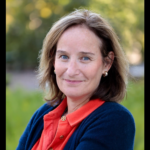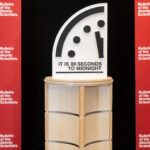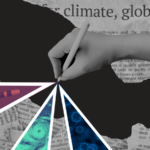Ellen Johnson Sirleaf joins the 2021 Doomsday Clock Announcement
By Bulletin Staff | January 21, 2021
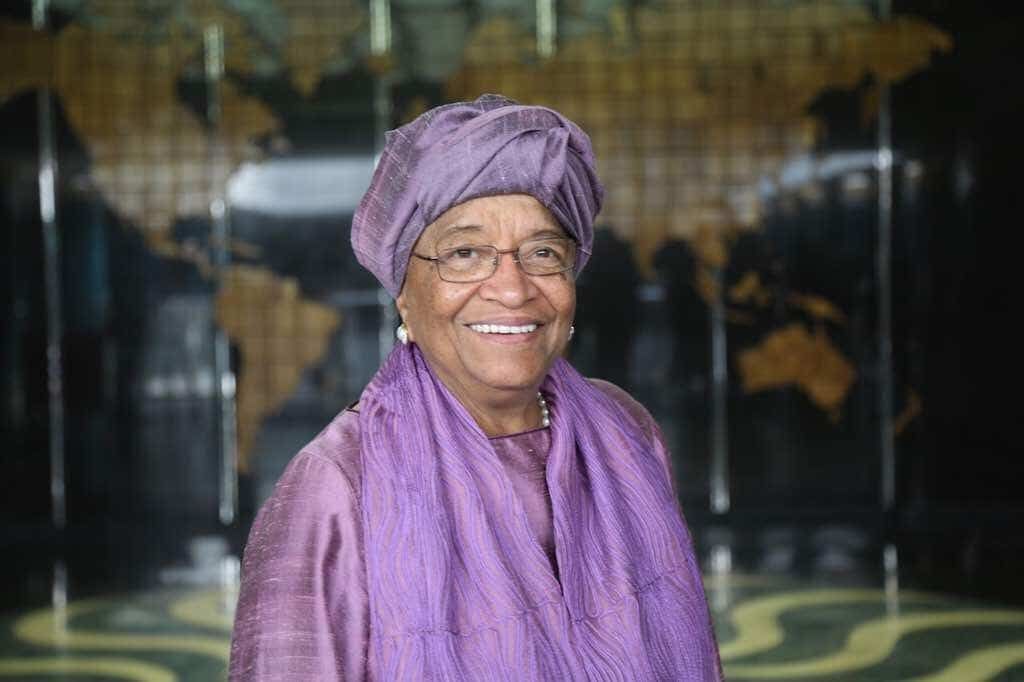
The Bulletin is thrilled to announce that Ellen Johnson Sirleaf will be joining us live for the 2021 Doomsday Clock announcement on January 27!
Johnson Sirleaf, a Nobel Peace Prize Laureate and former President of Liberia, co-chairs the World Health Organization Independent Panel for Pandemic Preparedness and Response and is a member of The Elders, an independent group of global leaders founded by Nelson Mandela in 2007, who work together for peace, justice and human rights.
Regarding the COVID-19 pandemic and the Doomsday Clock announcement, Johnson Sirleaf stated:
“COVID-19 is a terrible warning against complacency in the face of global existential threats. The past twelve months have served to reinforce the messages that the Bulletin of the Atomic Scientists has been saying for decades: that it is only through collective action and responsible leadership that we can secure a peaceful and habitable planet for future generations. The new Presidency of Joe Biden has a chance to reassert US commitments to the values and institutions of multilateralism; there is no other way for humanity to overcome the dangers posed by pandemics, climate change and the risk of nuclear war.”
Meet our speakers for the 2021 Doomsday Clock announcement:
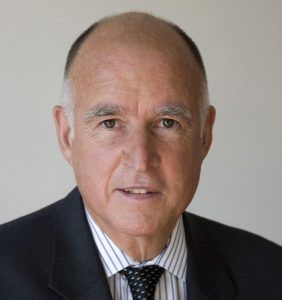 |
Governor Jerry Brown completed his fourth term as Governor of the State of California in 2019. He began his career in public service in 1969 as a trustee for the LA Community College District and became California Secretary of State in 1970 and Governor of California in 1974 and 1978. After his governorship, Brown lectured and traveled widely, practiced law, served as chairman of the state Democratic Party, and ran for president. Brown was elected Mayor of Oakland in 1998 and California Attorney General in 2006; he was elected to a third gubernatorial term in 2010 and a fourth term in 2014. His administration established nation-leading targets to protect the environment and fight climate change. Brown attended the University of California, Berkeley, and earned a JD at Yale Law School.
|
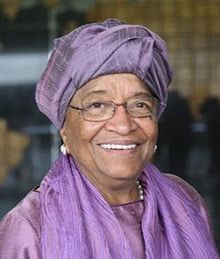 |
President Ellen Johnson Sirleaf was President of Liberia from 2006-2018, making her Africa’s first elected female head of state. She was awarded the Nobel Peace Prize in 2011 alongside women’s rights campaigners Leymah Gbowee of Liberia and Tawakkul Karman of Yemen for her contribution to securing peace in Liberia, to promoting economic and social development, and to strengthening the position of women. She was awarded the highly prestigious Ibrahim Prize for Achievement in African Leadership in January 2018, a month after retiring from two full terms in office, ensuring the country’s first peaceful, democratic transition of power in 73 years. Since stepping down as President, and drawing on her experiences during the Ebola epidemic, she has become a staunch advocate for community health workers and health for all. She joined The Elders in January 2019. In July 2020, Ellen Johnson Sirleaf was appointed to co-chair the WHO’s Independent Panel for Pandemic Preparedness and Response (IPPR) alongside former New Zealand Prime Minister Helen Clark, to evaluate the organisation’s response to the COVID-19 pandemic. |
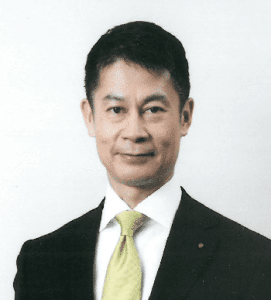 |
Governor Hidehiko Yuzaki, current governor of Hiroshima Prefecture, was born in Hiroshima Prefecture in 1965, graduated from The University of Tokyo in 1990, and earned an MBA from Stanford University in 1995. At the Ministry of International Trade and Industry (presently Ministry of Economy, Trade and Industry) in 1990, he engaged in work on automobiles, trade with the United States, energy, start-ups, etc., then was seconded to a venture capital firm in Silicon Valley. He won his first election in 2009 and is now in his third term as Governor. |
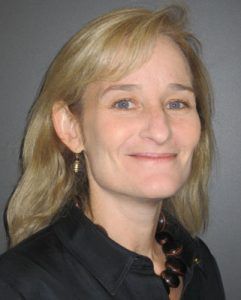 |
Dr. Rachel Bronson is the president and CEO of the Bulletin of the Atomic Scientists, where she oversees the publishing programs, management of the Doomsday Clock, and a growing set of activities around nuclear weapons, nuclear energy, climate change, and disruptive technologies. Before joining the Bulletin, she served for eight years at the Chicago Council on Global Affairs in a number of capacities including: vice president of studies, vice president of programs and studies, and senior fellow, global energy. She also taught “Global Energy” as an adjunct professor at the Kellogg School of Management. |
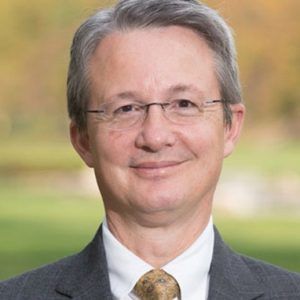 |
Dr. Steve Fetter is associate provost, dean of the graduate school, and professor of public policy at the University of Maryland. He served for five years in the White House Office of Science and Technology Policy during the Obama Administration, where he led the environment and energy and the national security and international affairs divisions. He is a fellow of the American Physical Society and a member of the Union of Concerned Scientists board of directors and the National Academy of Sciences Committee on International Security and Arms Control. He has worked on nuclear policy issues in the Pentagon and the State Department and has been a visiting fellow at Stanford, Harvard, MIT, and Lawrence Livermore National Laboratory. He also served as associate director of the Joint Global Change Research Institute and vice chairman of the Federation of American Scientists. He is a recipient of the American Physical Society’s Joseph A. Burton Forum and Leo Szilard Lectureship awards, the Federation of American Scientists’ Hans Bethe ‘Science in the Public Service’ award, and the Secretary of Defense Medal for Outstanding Public Service. |
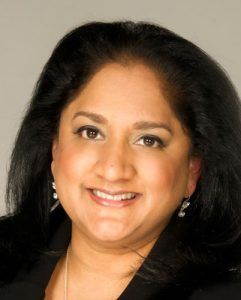 |
Dr. Asha George is the executive director of the Bipartisan Commission on Biodefense. She is a public health security professional whose research and programmatic emphasis has been practical, academic, and political. George served in the US House of Representatives as a senior professional staffer and subcommittee staff director at the House Committee on Homeland Security in the 110th and 111th Congress. She has worked for a variety of organizations, including government contractors, foundations, and non-profits. As a contractor, she supported and worked with all federal Departments, especially the Department of Homeland Security and the Department of Health and Human Services. George also served on active duty in the US Army as a military intelligence officer and as a paratrooper. She is a decorated Desert Storm Veteran. She holds a Bachelor of Arts in Natural Sciences from Johns Hopkins University, a Master of Science in Public Health from the University of North Carolina at Chapel Hill, and a Doctorate in Public Health from the University of Hawaii at Manoa. She is also a graduate of the Harvard University National Preparedness Leadership Initiative. |
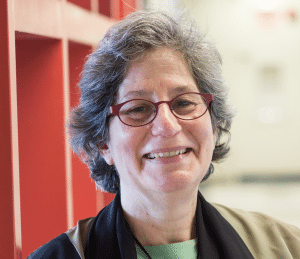 |
Dr. Susan Solomon is the Lee and Geraldine Martin Professor of Environmental Studies at the Massachusetts Institute of Technology and was the Founding Director of the MIT Environmental Solutions Initiative from 2014-2015. She is well known for pioneering work that explained why there is a hole in the Antarctic ozone layer and is the author of several influential scientific papers in climate science. Solomon received the Crafoord Prize from the Swedish Academy of Sciences in 2018, the 1999 US National Medal of Science, the nation’s highest scientific award, in 1999, and has also received the Grande Medaille of the French Academy of Sciences, the Blue Planet Prize in Japan, the BBVA Frontiers of Knowledge Award, and the Volvo Environment Prize. She is a member of the US National Academy of Sciences, the French Academy of Sciences, and the Royal Society in the UK. She served as co-chair for the Intergovernmental Panel on Climate Change (IPCC) fourth climate science assessment report, released in 2007. Time magazine named Solomon as one of the 100 most influential people in the world in 2008. |
Together, we make the world safer.
The Bulletin elevates expert voices above the noise. But as an independent nonprofit organization, our operations depend on the support of readers like you. Help us continue to deliver quality journalism that holds leaders accountable. Your support of our work at any level is important. In return, we promise our coverage will be understandable, influential, vigilant, solution-oriented, and fair-minded. Together we can make a difference.
Topics: What’s New at the Bulletin


